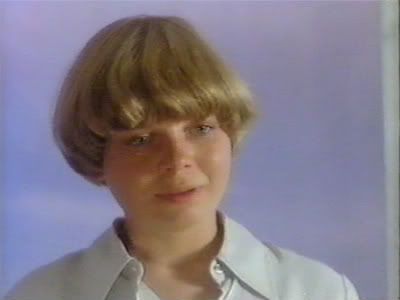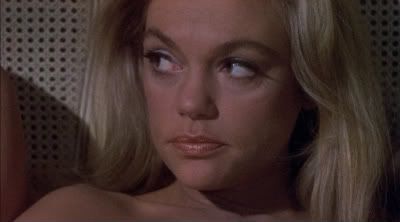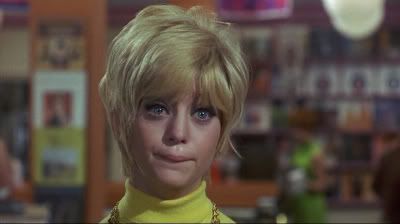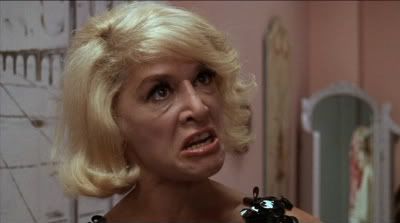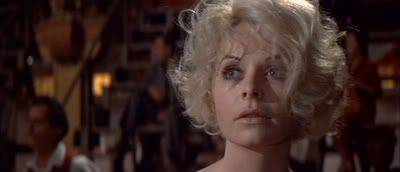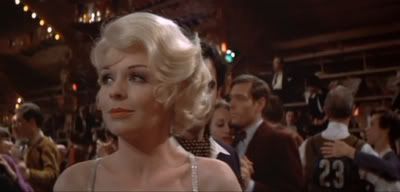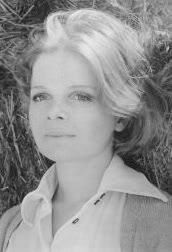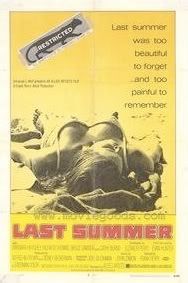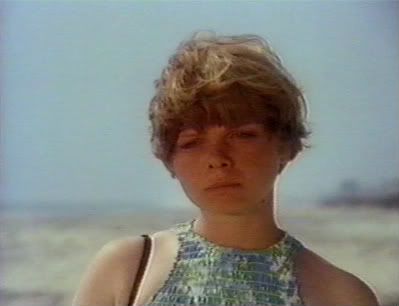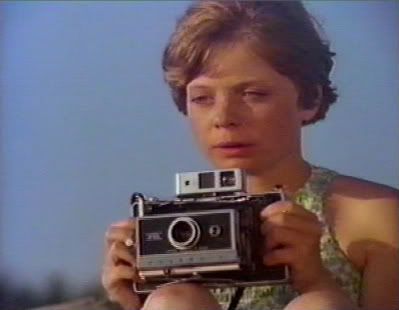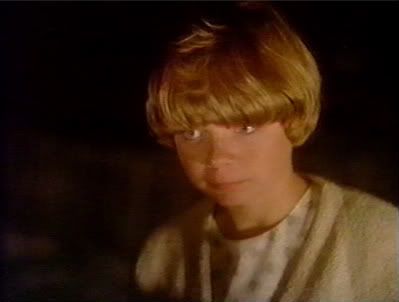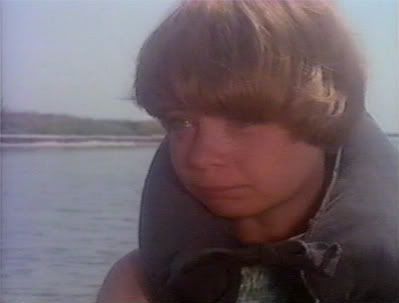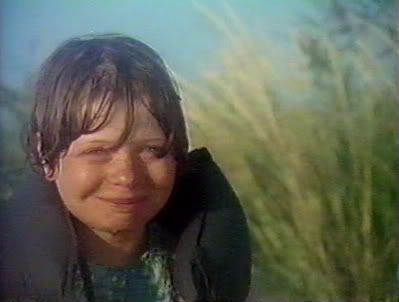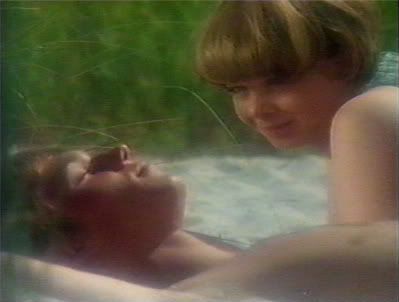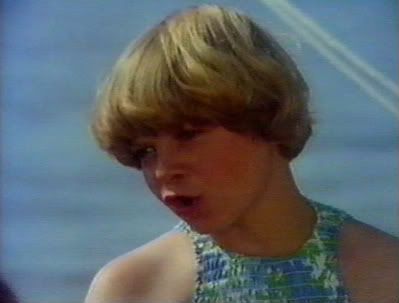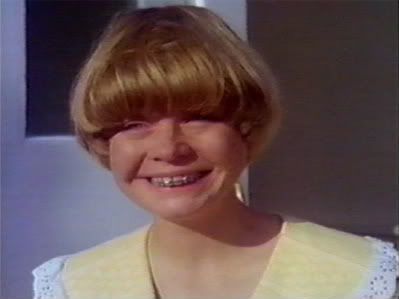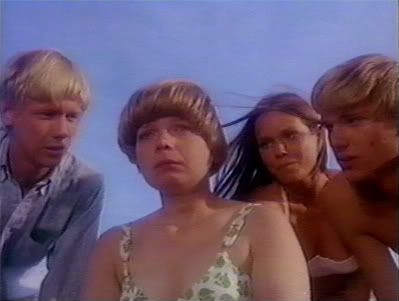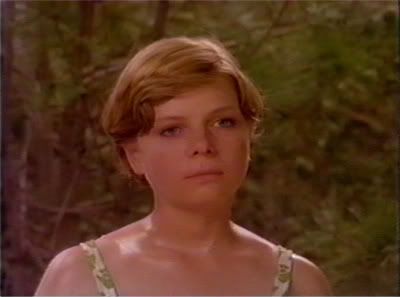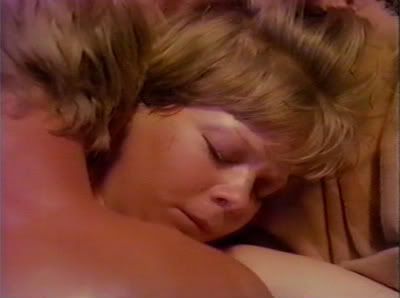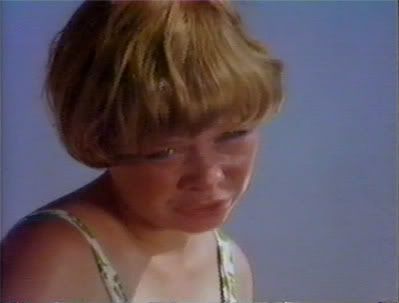
The Year is...
ALEX of Alex in Movieland
BRAD of Criticlasm & Oh, Well, Just This Once...
BROOKE CLOUDBUSTER of Boy on Film
RICHARD
SLAYTON of PUXZKKX
with
yours truly, STINKYLULU.
And, again this month, Alex in Movieland has generously graced us with another brilliant clipreel.
(Each Smackdowner's comments are arranged according to ascending levels of love. Click on the nominee's name/film to see StinkyLulu's Supporting Actress Sunday review.)
BRADI hated this film on so many levels. I found Burns’ performance weirdly mannered, as if a child was trying to act like an adult. Such a strategy might have worked, but I didn’t quite believe Burns, and never forgot she was acting. The whole exercise was excruciating without being revelatory.
STINKYLULUA deft, alarming portrayal of a precociously insightful yet abidingly naïve young woman. While not especially artful, Burns delivers a consistently compelling performance in a confined and confounding film.
BROOKEBurns' understanding of Rhoda does not allow her to be just a victim; she illuminates the other essential details of her character, her self-knowledge and loneliness. Nowhere is this more evident than in her shattering monologue, but this is a full-bodied and developed performance.
ALEXShe’s like an ugly Samantha Morton in nauseating film. There’s deglam, but also a tone of talent which comes to light in a haunting monologue done with perfect mimicry and great storytelling skills.
RICHARDWhen the stuffy Academy recognizes an unknown’s work in a little indie film, you know there’s something special here. From every shy downturn of her eyes to every nervous smile, Burns doesn’t disappoint, and retains her power even years later.
SLAYTONSaddled with the victim in a malicious game of adolescent cat-and-mouse, Burns could have mired Rhoda in a mess of tics and neuroses, or succumbed to easy bathos. Instead, she grounds the character in ways that are refreshingly, devastatingly human. Breathtaking work, some of the best this category has seen.
TOTAL: 22 s
s
 s
sSTINKYLULUCannon's doll-like features combine with her formidable charisma to create a character we are inclined to like, and to root for, even when Cannon herself does little to illuminate Alice’s complex character arc. A vivid, captivating, appealing yet – ultimately – erratic and vacuous performance.
RICHARDI will say that this is probably Cannon’s best performance, which isn’t saying much. In a far weaker year she might’ve actually had a chance at a win. Not so here. This is a serviceable performance in an outdated film.
BROOKECannon gives a performance that is nothing if not consistent; she slam-dunks the character arc of Alice with apparent ease with few shortfalls. However, at points, one might ask for a little more from the actress, some scenes at the end of the movie are missed opportunities.
ALEXWhen she’s bashful, I find her loveable and sweet. When she gets naughty, she’s delicious and hot. Dyan does justice to the character’s arc and I think the casting’s right. Yet, could she have done more? Probably. But still good.
BRADThe most interesting and anchored performance in a film that is tonally all over the place. I would think she got this for the scene with the therapist, which is great, and for being the person we empathize with (as Lulu has pointed out). She never disappears into the role, and at times I felt her personal twinkle coming out instead of character. Solid, compelling without necessarily soaring, but it still was what kept me involved.
SLAYTONAs Gould provides the comic high point for this already hilarious picture, Cannon gives the film an emotional anchor that is instrumental in preventing it from disappearing up its own ass. Sublime and perceptive work from an underappreciated actress.
ALEXHer performance in the beginning is so bad that it’s hard to recover. Some tears and scattered moments of good but never great save her a bit. Cool to vote for her, but still an absurd win and flawed performance.
SLAYTONHawn bursts on to the screen with a spirit and verve uncommon in a debut, making the most of her thin sketch of a role. She’s very good at what she does here, and she’s quite adept considering the material, but unfortunately the part doesn’t really demand talent or innovation. A confection, nothing more.
RICHARDThis is an easy role to play, but hard to play well. I find Hawn’s Oscar win understandable for her enjoyable fluff of a film, but given her superior competition, I was expecting just a little bit more.
STINKYLULUHawn's work in Cactus Flower is perfectly apt, impressively conveying all that’s necessary (uncommon charisma, emotional simplicity, infectious charm) for this role, a role that asks simply that Hawn be impossibly yet believably cute. A memorably vivid performance of a subtly difficult role.
BRADSpeaking of twinkling—gah! Hawn upstages Matthau and Bergman (almost), and seems completely at home. I imagine that, had I never seen her before, I would have been enthralled (see Amy Adams in Junebug for a recent parallel). Hawn gives the “dumb blonde” role a depth, humanity and intelligent the script doesn’t.
BROOKEOscar did right by this choice. Hawn uses her unrelenting charisma and clear comic abilities to create a believable character, and far surpasses the material she's given.
RICHARDAre you kidding me? How did anyone even remember Miles in a film that focused on the legendary Hoffman and Voight? I can appreciate her ability as this cipher of a character, but even mentioning a nomination is too much.
SLAYTONMiles wanders into the film in her own little world, contributing an incredibly overwrought reading of her character and absolutely refusing to be a receptive scene partner. Technically good on its own, but wildly dissonant within the scope of the film.
BROOKEMiles makes an iconic cameo, but her role lacks the kind of narrative hooks of a Dench or Straight that makes this nomination supportable. A good few minutes, but there are more substantial performances to be nominated even within her film.
BRADShe’s great in this, and one of the things I always remember about the film. Dangerous, comedic, unglued and perfect. I love it, but I don’t know if it’s enough of a part for a nom, definitely not for a win. Though she does what Miles does well in supporting parts—vivid, interesting characters that I always want more of.
ALEXNot the best of the five, but definitely my favorite. Finally some fun: loud, bitchy, scary, all that fire and music, compressed in just a couple of minutes. Her effort to make it memorable pays off big time..
STINKYLULUMiles's work in the role of Cass is vivid – lively and vigorous and powerful. Miles's fearless and fearsome work in this sequence of short scenes conveys the depth of a complex, scary and sad story that we never get to see. It's indelible actressing at the edges, and a formidable accomplishment besides.
SLAYTONYork maintains a firm hold upon the disparate elements of Alice’s unstable personality, but she somehow lacks the glue to put these pieces together into a cohesive whole. It is a fascinating yet incomplete performance.
ALEXIt’s hard to pick sides. Theatrical is a soft word to describe it, but as it is in the spirit of the character, I can totally accept it. If she’s meant to be pitied, then she’s done her job..
BRADSuch a cynical film. Ugh. York’s fragility is not immediately obvious, though perhaps her delusion is, and so her crumbling is interesting for that reason. Her best work for me is not in the breakdown, but in the complex and thrilling scene with Sarrazin in the storage space.
RICHARDShe’s human, yet a caricature. Mysterious, yet utterly transparent. York’s performance is an enigma to me. I see who Alice is, and why she does what she does, and yet she’s still difficult to understand. She leaves an indelible impression.
STINKYLULUYork creates the glamorously aspiring Alice as a fascinating, flawed mess, while also investing the character with an ominous, intriguing fragility. And when the tightly wound Alice finally snaps, York’s performance contributes a necessary delicacy to this tough, tough film.
BROOKEYork's masterclass achievement has two great scenes to work with, a diva-worthy entrance and a reverberating mad scene. To her immense credit, when the movie seems to forget her character, she remains vivid, subtly hinting at Alice's loose grip on sanity.



